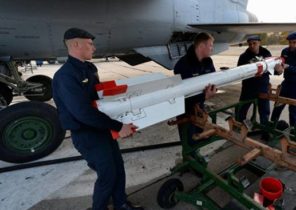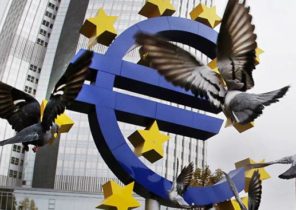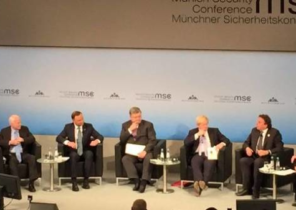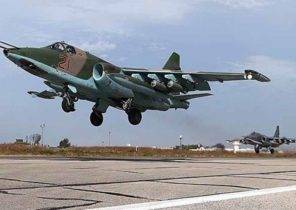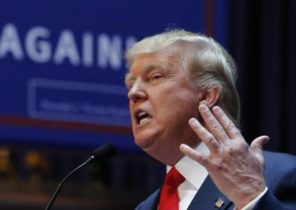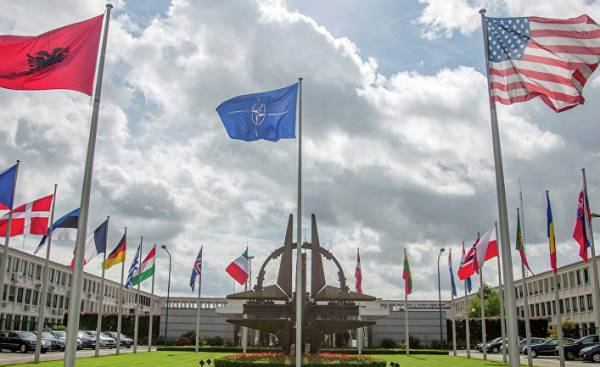
“Last year, the Russian defense budget was 4.1 times less than the military spending of European NATO countries. The heralds of Russophobia want to increase?” — asks the scientist Oskar Krejci in interview Prvnizpravy.cz.
— První zprávy: the week of big diplomacy: meeting of foreign Ministers of countries belonging to the group of the most developed and most rapidly developing economies — a Large twenty; began the Munich security conference and a meeting of NATO defense Ministers. If we turn to our mainstream media, the main theme of the week was this: judging from the first statements of the us Vice President and us Ministers, US policy remains unchanged.
— Oskar Krejci: part of the truth in this is there. We feel great caution in the wording of the political positions of the American Ministers. It is clear that they are only familiar with the current issues and realize the unprecedented and extremely critical pressure at home.
But it remains the appeal to the European allies in NATO to increase military spending. I would say that Washington has placed greater emphasis on the spending of Europeans in the amount of two percent of GDP. This is understandable because now, perhaps, the topic in the media main. Do not you think that we are talking about a direct continuation of Obama’s policy to contain Russia?
— There is no such nonsense that mainstream media shouldn’t be willing to repeat to disgust, if it is any anti-Russian or anti-Chinese. However, just this week, London’s international Institute for strategic studies (IISS) published the latest figures for defence expenditure in the world. It is noteworthy that already in the introduction of its annual review, the Institute almost literally repeats the arguments made to us in the January interview: our London colleagues also believe that under certain conditions the Alliance should cover expenses in the amount of one percent of GDP, and in other situations would require three percent of GDP. According to the survey, only two European NATO States (Estonia and Greece) spend on the defense of two percent of GDP. The authors of the review add same thing, what we talked about a month ago: the increase in costs of all countries-members of NATO to two percent of GDP will mean an increase in costs of the Alliance by 40%.
Seems to be really resonates with our January conversation!
But the similarities end there. So, colleagues from the IISS do not call to make an objective analysis of the political situation, on the basis of which it would be possible to understand how, in fact, we should be doing on defense. The authors just repeat, like our media, famous pledge to allocate 2% of GDP. If we add to this last communiqué of the NATO summit in Warsaw in which countries are encouraged to contain Russia, it seems that the search path to the prudent military strategy and pragmatic foreign policy of the question.
— Do not you think that Russian foreign policy is dangerous? Or even aggressive?
— It’s not even in what the Russian policy, and how it is perceived in the United States and European NATO allies dutifully American opinion adopt. The official U.S. approach to Russia after the cold war has varied, but he was never a partner. Elenovska Russia had not been for Washington, a partner able to cooperate with its allies — Russia was a client who needed a patron and benefactor. Putin’s Russia is perceived as a geopolitical rival.
The current criticisms of Moscow summarize the future in the March issue of the journal Foreign Affairs Eugene Rumer, Richard Sokolsky and Andrew Weiss from the Carnegie Endowment: “the annexation of the Crimea, hidden in a bloody war… the Russian forces in Eastern Ukraine… the crackdown on civil society at home, the irresponsible threat of nuclear weapons and military provocations of the allies and partners in Europe, the US… military intervention in Syria… and an unprecedented attempt with the help of hackers, supported by the Kremlin, and disinformation campaign to intervene in the presidential elections.” This is a legacy of deteriorated under Barack Obama relationships, we can enrich the other actions of Russia, which touched Washington, although he is not always willing to admit it. I say, for example, granting protection to the former employee of the American national security Agency (NSA) Edward Snowden, and also loyal attitude of Moscow to the activities of WikiLeaks.
— Quite a long list of actions that in fact cannot be regarded as friendly gestures towards the West. Is all of this, in your opinion, does not prove the aggression of Russia? For example, once in first place on this list, as a rule, is the annexation of Crimea.
— In psychology there is a term — protective aggression. Do you really expect that after the coup in Kiev, the Ukraine will become a member of NATO, and the Sevastopol will become a US military base?
Is frequent, but not entirely valid argument. Where did you get the confidence that everything is exactly what would have happened?
— And where does the certainty that, without opposition from Russia this would not have happened? We are only talking about probability. And remember how during the reign of Viktor Yanukovych, Kiev wanted to spend in the Crimea military exercises with the us military (in 2006 and 2009). Protests by local residents have blocked American soldiers — they had to return to the ships. If after the coup in Kiev in Crimea held a referendum and Moscow does not recognize it, most likely, today in the Crimea, would the same war as in the East of Ukraine. It is impossible to conduct a reasonable and pragmatic policy, not taking into account the historical, cultural and ethnic realities.
In addition, not only the West has claims to Russia, but Russia has nothing to reproach the West. I will list only the most frequent critical comments about U.S. policy and NATO support of forces hostile to Russia in the countries of the former USSR, Wasilewska success, especially in the Baltic States, Georgia, Ukraine and Moldova temporarily. Next: the expansion of NATO towards Russia, the bombing of Yugoslavia, support for anti-government opposition in Russia, including terrorists in the Caucasus, withdrawal from the Treaty on the limitation of anti-ballistic missile systems and build a global National missile defense around Russia and China, the intervention in Iraq, kidnapping of Russian citizens around the world, support the armed opposition in Syria.
— Well, I understand, are you saying that the fault lies on both sides?
Not quite. If you compare individual events with dates, it appears that in the process of deterioration of relations between Russia and the West, the initiative was mainly on our Western side. Steps were taken, which did not take into account the fact that the Russians are very sensitive to pressure from the West. Next week Russia will celebrate defender of the Fatherland Day, will be revived by the Alexandrov choir…
— And, nevertheless, such actions, as the anticipated intervention in the American elections, cannot be ignored. Would not Russia thus beyond?
— I don’t know where some politicians and journalists to take confidence in the fact that what happened in American cyberspace was the handiwork of the Kremlin. And that means “beyond” in international politics? What is not in the interests of a state and is not included in the dictionary of political correctness, which hides reality? The first intervention of the CIA in the elections abroad occurred in 1948 in Italy just a few months after the creation of the intelligence Agency. By the way, that “democratic forces” was due to the fact that Washington is afraid of the February events in Czechoslovakia. Followed the intervention of the CIA in the strike of port workers in Marseille and more. And it’s still happening. On a variety programme, the development of democracy in the new Russia, the West has spent hundreds of millions of dollars.
— But Russian agents in the US and the West….
— But still what is “beyond” in the modern world? We may not like it, but we should not indulge in empty moralizing, or just to wail. A few days ago on the Board of the Federal security service Vladimir Putin said that Russia “last year, was suppressed the activity of 53 officers and 386 of agents of foreign special services.” Assume that we are talking not about employees of the security services of African States. Just mutual trust between Russia and the West was lost.
Someone can say that you contradict yourself. You say that trust between Russia and the West have lost, and thus questioned the need to increase defence spending by European NATO members. It can be argued that in a period of uncertainty other support except the army does not exist.
— Okay, then let’s go back to the most recent IISS. This institution works under the old methodology, which is used in NATO, so the data can be compared. IISS writes that in 2016, defense spending was 604,5 billion, while expenses — of 58.9 billion dollars (China — 145,0 billion). Let’s compare this with the official figures of NATO the middle of last year. In 2016, the military spending of the Alliance reached 918,3 billion, and European countries-members of NATO without USA and Canada, spent for military purposes in total 238,8 billion.
If my calculations are correct, in 2016, the Russian defense spending was nearly 15.6 times less than the cost of NATO, and 4.1 times less than the expenditures of European members of the Alliance. The heralds of Russophobia want to increase? What Putin stands at the gates of NATO and in this balance of forces is going to attack a defenseless country in the Alliance, probably, I can’t believe even editors of the public media. Although with regard to Czech television, this is not certain.
— You doesn’t paint a very optimistic picture of the world. What to do in this situation?
— Go to the constructive diplomacy, to stop making wild propaganda statements aimed at an internal audience, to limit the insatiable hunger of the military industrial complex and based on small compromises begin to build trust. Survival requires more than concern about the environment. This world is not the best possible, but we have another.

